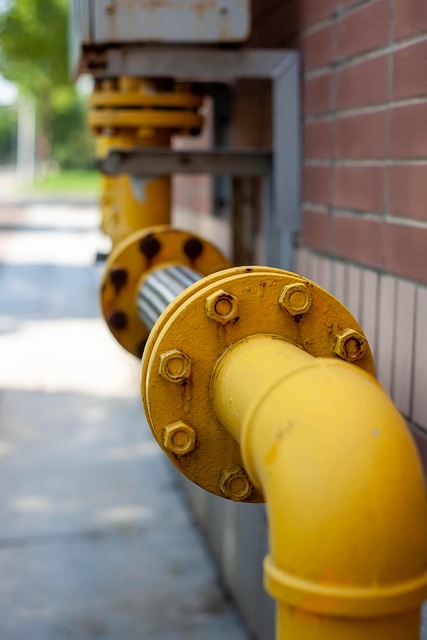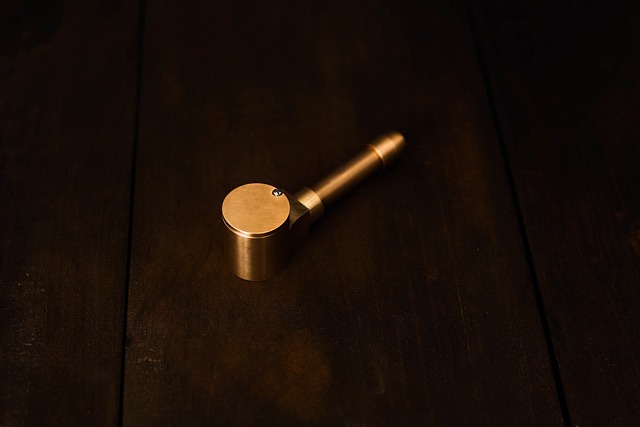Pipe corrosion, driven by water quality (hard water), pipe materials (metals vs. plastic/PVC), chemical exposure, and moist environments, is a significant plumbing concern. Regular maintenance focusing on early signs like rust or leaks is key to prevention. Minor damage can be DIY'd but severe cases require professional assistance to replace affected sections, address moisture issues, and offer tailored corrosion-prevention strategies for future protection.
Pipe corrosion is a common issue that can lead to significant damage and costly repairs. Understanding the common causes of pipe corrosion, such as moisture, chemical exposure, and poor material choices, is crucial for effective maintenance. This article provides a practical guide on when to fix, replace, or call a professional for pipe corrosion repair, helping you make informed decisions to prevent further damage. By recognizing the signs and taking appropriate action, you can ensure your pipes remain in top condition.
- Recognizing Common Causes of Pipe Corrosion
- When to Fix, When to Replace: A Practical Guide
- When to Call in the Pros for Pipe Corrosion Repair
Recognizing Common Causes of Pipe Corrosion

Pipe corrosion is a common issue that can arise from various factors, often leading to structural damage and reduced efficiency in plumbing systems. Understanding the common causes of pipe corrosion is essential for homeowners and professionals alike to make informed decisions regarding maintenance and repairs. One of the primary culprits is water quality; hard water containing high levels of minerals can accelerate corrosion over time. Additionally, the type of material used in pipes plays a significant role; metals like iron, copper, and steel are more susceptible to corrosion compared to plastic or PVC pipes. Exposure to certain chemicals, such as chlorine or acidic substances, can also contribute to pipe deterioration. Moist environments, inadequate drainage, and poor ventilation further exacerbate the problem by creating ideal conditions for corrosion to thrive.
When to Fix, When to Replace: A Practical Guide

Pipe corrosion is a common issue that can arise due to various factors, including water quality, pipe material, and age. Before deciding whether to fix or replace corroded pipes, it’s essential to understand the root cause of the problem. Regular maintenance checks can help identify early signs of corrosion like rust buildup, leaks, or reduced water pressure.
When the damage is minor and localized, fixing the pipes might be a viable option. This typically involves repairing small pinholes, patching, or replacing specific sections. However, if the corrosion is extensive, affecting large portions of the pipe or leading to structural weakness, replacement is necessary. Consider seeking professional assistance for complex cases, as experts can assess the severity and provide tailored solutions, addressing not only the immediate problem but also preventing future corrosion.
When to Call in the Pros for Pipe Corrosion Repair

If you’re dealing with pipe corrosion, it’s crucial to understand that some repairs can be tackled as DIY projects. However, when faced with severe or widespread corrosion, it’s time to call in the professionals. Common causes of pipe corrosion, such as exposure to moisture, salt water, or acidic substances, can lead to structural damage if left unaddressed. While minor rust spots might be manageable with specialized cleaning solutions and patching kits, extensive pitting, scaling, or structural breakdown requires expert intervention.
Pros are equipped with advanced tools and knowledge to assess the severity of the corrosion, ensuring that only necessary sections are replaced while minimizing disruption to your plumbing system. They can also provide insights into preventing future corrosion issues by suggesting material upgrades, better insulation, or protective coatings tailored to your specific needs.
Pipe corrosion is a common issue that can be addressed through simple fixes, replacements, or professional assistance. By understanding the common causes of pipe corrosion and knowing when each action is necessary, homeowners and property managers can efficiently maintain their plumbing systems. Regular inspection and proactive measures are key to preventing severe damage. Remember, while DIY methods may work for minor issues, complex cases often require professional expertise to ensure long-lasting solutions.
